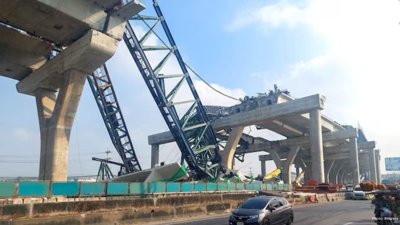
Post by : Meena Rani
In October 2025, the United States imposed new sanctions on Russian oil companies Rosneft and Lukoil. These sanctions have significant implications for the global energy market, particularly for India, one of the largest importers of Russian crude oil. In response, India is carefully assessing the impact of these US sanctions on Russian oil imports and revising its energy procurement strategy to ensure energy security and affordability.
On October 22, 2025, the US Treasury Department placed Rosneft and Lukoil on the Specially Designated Nationals (SDN) list, effectively prohibiting American entities from transacting with these companies. These two firms account for nearly 60% of Russia’s crude oil exports to India. The sanctions require all business with these companies to be terminated by November 21, 2025.
The Indian government has declared that it is “studying the implications of these sanctions.” The Ministry of External Affairs reaffirmed India’s commitment to securing affordable and diverse energy supplies to meet the needs of its 1.4 billion population. Major Indian refiners such as Reliance Industries Limited have announced a halt to imports under their long-term contracts with Rosneft, while HPCL-Mittal Energy suspended its Russian crude purchases. Indian refiners are now increasingly sourcing crude oil from Middle Eastern, Latin American, and US suppliers to compensate for the expected shortfall in Russian imports.
India’s energy sector faces growing challenges amid US sanctions and previously imposed tariffs affecting exports to the US, tied partially to India’s Russian oil imports. Russia had become India’s leading crude oil supplier after the 2022 Ukraine conflict, with Russian oil accounting for 34-40% of India’s total crude imports. However, in the first nine months of 2025, India’s Russian oil imports declined by around 8.4% year-on-year as discounted prices narrowed and supplies tightened.
According to the International Energy Agency (IEA), India imported around 1.9 million barrels per day of Russian crude during the first nine months of 2025, representing approximately 40% of Russia’s total oil exports. Given that India imports about 85% of its crude oil needs, reduced reliance on discounted Russian crude is expected to increase India’s crude import costs, which could exert upward pressure on domestic fuel prices.
India’s recalibration of its crude oil procurement in light of US sanctions reflects the complexities of balancing geopolitical diplomacy with energy security imperatives. Diversifying crude oil sources and boosting domestic production capacity remain key priorities. The coming months will test India’s ability to manage these transitions while maintaining economic stability and meeting its growing energy demands.
#IndiaOilImports #RussianCrudeOil #USSanctionsOnRussia #EnergySecurityIndia #CrudeOilDiversification










Advances in Aerospace Technology and Commercial Aviation Recovery
Insights into breakthrough aerospace technologies and commercial aviation’s recovery amid 2025 chall

Defense Modernization and Strategic Spending Trends
Explore key trends in global defense modernization and strategic military spending shaping 2025 secu

Tens of Thousands Protest in Serbia on Anniversary of Deadly Roof Collapse
Tens of thousands in Novi Sad mark a year since a deadly station roof collapse that killed 16, prote

Canada PM Carney Apologizes to Trump Over Controversial Reagan Anti-Tariff Ad
Canadian PM Mark Carney apologized to President Trump over an Ontario anti-tariff ad quoting Reagan,

The ad that stirred a hornets nest, and made Canadian PM Carney say sorry to Trump
Canadian PM Mark Carney apologizes to US President Trump after a tariff-related ad causes diplomatic

Bengaluru-Mumbai Superfast Train Approved After 30-Year Wait
Railways approves new superfast train connecting Bengaluru and Mumbai, ending a 30-year demand, easi